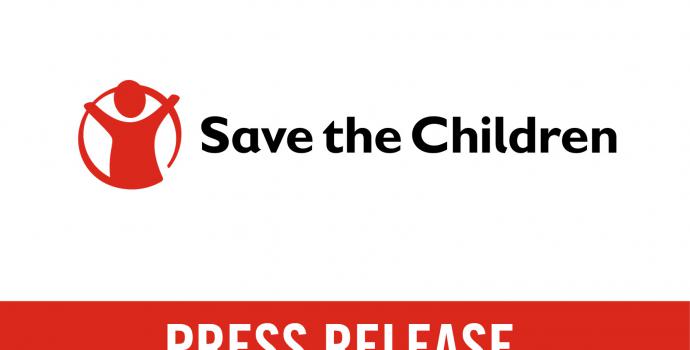Source: Save The Children
Amman – 30th September 2021 – A 20-day-old baby and a 17-year-old pregnant girl are among COVID-19’s latest victims in Northern Syria as the number of people catching the virus continues to rise sharply, Save the Children said today.
The organisation called for the international community – particularly countries that have already benefitted from decent vaccination roll-outs – to urgently support and fund relevant authorities and NGOs in the fight against the pandemic and to help impacted children.
Save the Children earlier this month warned of a sharp increase in COVID-19 cases across North West Syria, particularly of the Delta variant, with only a dozen or so beds remaining in intensive care units (ICU).
From August to September the confirmed number of coronavirus cases in North West Syria jumped by 144% to 71,715 as of 28 September with 1,151 deaths[i].
In North East Syria, including in the camps of Roj, Al Hol, Washukani and Areesha, there have been 27,296 coronavirus cases and 908 deaths since the start of the pandemic. Confirmed coronavirus cases have risen significantly over the past few months, including by more than 26% from August-September[ii].
Sonia Khush, Director of Save the Children’s Syria Response, said:
‘One death from coronavirus is one too many, but to hear that a baby and a 17-year-old have also been claimed is devastating. This virus has been with us for nearly two years now, and we know it doesn’t just go away. Without an urgent injection of funding, cases will continue to rise, and thousands of children living in some of the world’s most dire conditions will not even get the opportunity to access some of the basic relief our services provide to them. The world must not look away.’
As well as the 20-day-old baby and 17-year-old girl from Idlib, a teacher working in a mobile centre supported by Save the Children with partner organisation ATAA in North West Syria died of COVID-19 last week.
The teacher’s colleague, Ammar*, said his colleague used totreat his students as if they were his own children and was widely liked by students’ parents.
“He told me he was extremely tired and suspected he had coronavirus so he got tested immediately. He did not receive adequate care in a public hospital so was transferred to a private hospital, but only at the last minute because he couldn’t afford it. His situation deteriorated rapidly after arriving at the hospital and he later passed away.”
As well as a public health emergency, lockdowns are prohibiting vital aid and services from reaching people living in some of the worst conditions in the world, Save the Children said.
Save the Children continues to provide life-saving services like food vouchers and child protection in Roj, Al Hol, Washukani and Areesha camps in NE Syria but many of its other services including temporary learning spaces, child friendly spaces and mother-baby areas, have been suspended, impacting about 8,615 children.
Schools have been suspended in North West Syria since 25 September, forcing 12,278 children enrolled in Save the Children-supported education facilities back into remote learning[iii] and battling limited internet access and electricity.
The area is also experiencing a severe shortage in PCR testing capacity, ICU wards and other health services, including personal protective equipment (PPE).
Bassam*, Community Care Centre Supervisor at Save the Children’s partner organisation Violet, said:
“Nowadays, when we pass by isolation centres and hospitals in Idlib, we see overcrowded queues outside. Currently, we are at the peak of the spread of the outbreak in Idlib. And there is hardly any space left in hospitals or isolation centres – hospitals are nearly 99% full.
The rate of the spread of the virus in camps is very dangerous as the camps are so overcrowded.”
Save the Children is calling for increased funding to support the establishment of treatment centres and clinics including more ICU beds and oxygen ventilators in order to treat the most critical cases. There is also a desperate need for increased funding to support students undergoing remote learning and ensure they are supplied with the necessary equipment and learning materials, the organisation said.
*Names changed for confidentiality.
Notes to Editors
Save the Children is also providing services including case management and individual protection assistance for urgent cases, one-on-one infant and young child feeding support for breastfeeding mothers as well as rehabilitation/construction work where necessary and delivering coronavirus awareness sessions in North East Syria. Additionally, interim care centres are still operating and our teams are preparing mitigation measures in case lockdowns are extended and learning has to revert to remote learning modalities.



